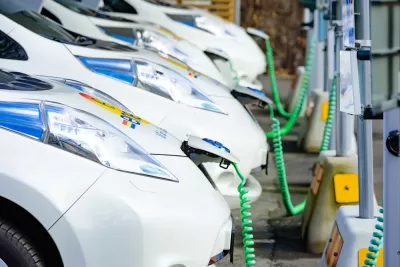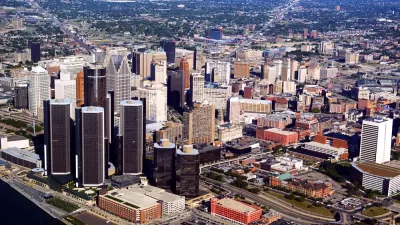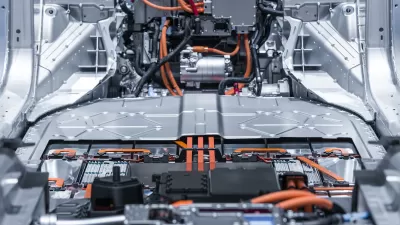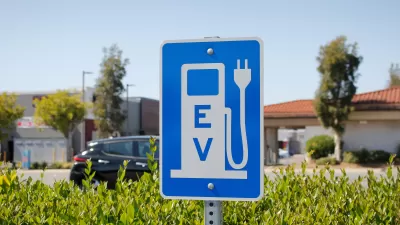An innovative electric car program in a small Central Valley town provides much-needed rides to low-income migrant workers.

The mayor of a small Central Valley town has transformed the overlooked community into the country's greenest migrant farmworker community through a revolutionary electric vehicle program, reports Evan Halper for The Los Angeles Times.
Located more than 50 miles from Fresno, Huron has struggled to provide adequate transportation for its population. Now, a program known as the Green Raiteros—a Spanglish term used to refer to migrant workers informally giving or receiving rides—makes transportation available free of charge to local residents using a fleet of nine electric cars, which the mayor hopes can grow. The program is funded through state grants and provides unlimited rides to residents, many of whom need transportation to nearby cities for medical appointments or other errands.
The town has also invested in charging infrastructure, with 30 stations already installed. As Halper writes, "It is a notable distinction when environmental justice groups are otherwise exasperated by the concentration of electric vehicle infrastructure in the wealthiest ZIP Codes." Mayor León hopes to make the city a model of electric vehicle innovation that, unlike most EV incentive programs, focuses on low-income households that can't afford car ownership.
The article goes on to describe Rancho San Pedro, another low-income community near the Port of Los Angeles experimenting with electric car share. The Huron and Rancho San Pedro programs highlight the impact that electric vehicles can have on low-income and rural communities, particularly those with low car ownership and lacking robust public transit networks.
FULL STORY: A neglected California city reinvents itself with electric cars — and plots a road map for the nation

Maui's Vacation Rental Debate Turns Ugly
Verbal attacks, misinformation campaigns and fistfights plague a high-stakes debate to convert thousands of vacation rentals into long-term housing.

Planetizen Federal Action Tracker
A weekly monitor of how Trump’s orders and actions are impacting planners and planning in America.

In Urban Planning, AI Prompting Could be the New Design Thinking
Creativity has long been key to great urban design. What if we see AI as our new creative partner?

King County Supportive Housing Program Offers Hope for Unhoused Residents
The county is taking a ‘Housing First’ approach that prioritizes getting people into housing, then offering wraparound supportive services.

Researchers Use AI to Get Clearer Picture of US Housing
Analysts are using artificial intelligence to supercharge their research by allowing them to comb through data faster. Though these AI tools can be error prone, they save time and housing researchers are optimistic about the future.

Making Shared Micromobility More Inclusive
Cities and shared mobility system operators can do more to include people with disabilities in planning and operations, per a new report.
Urban Design for Planners 1: Software Tools
This six-course series explores essential urban design concepts using open source software and equips planners with the tools they need to participate fully in the urban design process.
Planning for Universal Design
Learn the tools for implementing Universal Design in planning regulations.
planning NEXT
Appalachian Highlands Housing Partners
Mpact (founded as Rail~Volution)
City of Camden Redevelopment Agency
City of Astoria
City of Portland
City of Laramie





























